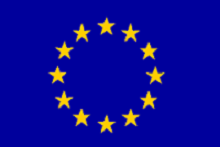European Commission Launch of the Digital Single Market Strategy
[Update] Press release: A Digital Single Market for Europe: Commission sets out 16 initiatives to make it happen
The EU Roadmap to a Digital Single Market unveiled (GIP report)
The long awaited EU Digital Single Market strategy was presented on 6 May in Brussels. The Digital Single Market is a top priority of the European Commission (EC). In the eyes of many, it represents a panacea to the sluggish European economy and a fresh push for the largest unified consumers’ market area in the world. The EC estimates that bringing down digital barriers within Europe could contribute an additional €415 billion to the EU´s GDP.
The strategy contains a roadmap for EU member states, setting milestones for the process of harmonization and removing barriers in particular areas of e-commerce, geo-blocking, copyright frameworks, and sales taxes. Further steps were defined on the basis of 3 major areas for EU activity in the field, defined by the EC in March 2015 as better access for consumers and businesses to digital goods and services across Europe, creating the right conditions and a level playing field for digital networks and innovative services to flourish, and maximising the growth potential of the digital economy. The European Parliament called on the EC to speed up the motion for legislative action in the field. “…the European Commission’s proposals are heading in the right direction. However, member states’ laws will need further changes and we hope they will support the implementation of a common line for our Digital Single Market. We expect the Commission to submit more concrete proposals to the Parliament in due course,” commented Andreas Schwab MEP (EPP). The EC has already suggested a review of the e-commerce directive, adopted in 2000. The strategy contains 16 broader initiatives.
The Commission´s Digital Single Market Strategy factsheet can be found here.
Event announcement and background
The Internet and digital technologies are transforming our environment and our lives. Europe needs to embrace these digital opportunities to create new sources of jobs and growth on our continent. This is why the European Commission has made the creation of a Digital Single Market one of its top priorities: the aim is to help every European, from students to artists, from young entrepreneurs to industry leaders, seize the benefits of digital technologies. On 6 May, the Commission will adopt a Strategy that will lay the groundwork for Europe’s digital future. It will detail the key actions to be taken as well as the roadmap for delivering them. Three main areas for action were defined on 25 March (press release) following an orientation debate with all Commissioners: (1) better access for consumers and businesses to digital goods and services across Europe; (2) creating the right conditions and a level playing field for digital networks and innovative services to flourish; (3) maximising the growth potential of the Digital Economy.
Background
More and more Europeans are going online to shop, study, work or connect with their public administration; more and more small businesses are looking for opportunities across borders to scale-up and expand their activities. But they are held back by a series of obstacles, from different consumer rules in each Member State to high cross-border parcel delivery costs to unconnected e-services.
The Commission is committed to removing these barriers and has agreed on three main areas to focus on during this mandate:
- Firstly, the EU’s single market freedoms need to “go digital”. This means making sure that people can access and use online services across borders that businesses can sell more easily to other EU countries.
- Secondly, the right rules and conditions have to be set for those in the market, both traditional and new players.
- Thirdly, issues of data, skills and common standards need to be addressed. All industrial sectors should be able to integrate new technologies, such as big data or cloud computing, and manage the transition to a smart industrial system. At the same time, this will allow Europeans to fully benefit from interoperable e-services, from e-government to e-health, and develop their digital skills to boost their chances of getting a job.
Launch
On 6 May, the College of Commissioners will adopt the Digital Single Market Strategy. Vice-President Andrus Ansip, in charge of the Digital Single Market, and Commissioner Günther H. Oettinger, in charge of Digital Economy and Society, will be at the Midday briefing to present the Strategy to the press.
Sources
Digital Single Market Strategy: European Commission agrees areas for action
Factsheet: Why we need a Digital Single Market
President Juncker’s political guidelines
The Commission Work Programme 2015
Contacts
Mina Andreeva, +32 229 91382, mina.andreeva@ec.europa.eu
Marie Frenay, +32 229 64532, marie.frenay@ec.europa.eu
|full_html

